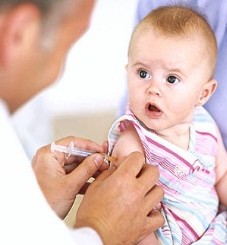Measles is a viral disease that is very contagious and it spreads through the respiratory tract either directly or through aerosol transmission.
Ninety percent of people who don’t have immunity to the virus causing  measles have the possibility of catching it if living with an infected person. It usually begins with a fever for how many days followed by a cough, runny nose and pink eye. The rash starts on the face, upper neck and spreads down the back and trunk, then continue to the arms and hands, as well as the legs and feet. Measles is also called as rubeola, morbilli or English measles.
measles have the possibility of catching it if living with an infected person. It usually begins with a fever for how many days followed by a cough, runny nose and pink eye. The rash starts on the face, upper neck and spreads down the back and trunk, then continue to the arms and hands, as well as the legs and feet. Measles is also called as rubeola, morbilli or English measles.
Measles Causes
Measles is caused by a virus, specifically a paramyxovirus, of the genus Morbillivirus.
Measles Signs and Symptoms
Measles has classical signs and symptoms called 4 Ds and 3 Cs – four-day fevers with cough, coryza (head cold) and conjunctivitis (red eyes), along with anorexia and rashes. Fever begins about 10 to 12 days after exposure to the virus. Its diagnostic sign is the presence of Koplik’s spots usually seen inside the mouth but are often not seen because they are short-lived and may disappear within in a day occurring. The measles rash is described as generalized, maculopapular, erythematous rash. It also change color from red to dark brown before disappearing.
The rash first appears on the face and upper neck. After three days, the rash spreads to the hands and feet. It lasts for five to six days and fades away.
Other symptoms include harsh dry cough, going off food, tiredness, and pain. Diarrhea and vomiting are also common. It usually occurs in children under 5 years old and adults above their 20s.
Measles Tests and Diagnosis
With the presence of the classical and diagnostic signs, measles can also be confirmed through laboratory tests having positive measles IgM antibodies or isolation of measles virus RNA from specimens of your respiratory tract. Saliva can also be collected for specific IgA testing. Contact with other patients with measles also validates infection. The contact may be through sex, saliva, or mucus.
Measles Treatment
There is no specific treatment for measles virus. However, supportive care may be given for the treatment of its symptoms and complications which includes good nutrition, adequate fluid intake and treatment of dehydration. Antibiotics should also be given to treat eye and ear infections and pneumonia. Children who are diagnosed with measles should receive two doses of Vitamin A supplements given 24 hours apart. This can help prevent eye damage and blindness. Paracetamol or ibuprofen may also be given for fever and pain. Once you are infected with measles, you will develop immunity to it for the rest of your life.
Measles Complications
Those who are infected with measles virus may develop complications if they have poor immune system. It includes:
- Blindness
- Encephalitis (inflammation of the brain)
- Severe diarrhea
- Pneumonia
- Severe respiratory infections
- Seizures
- Laryngitis (inflammation of the voice box)
Measles Prevention
Nowadays, routine measles vaccinations for children are available. Mass immunization campaigns are visible in countries with high case and death rates. The vaccine is safe, effective and inexpensive. The vaccine is usually combined with rubella and mumps vaccine. It is equally effective in single or combined doses.
Individuals should receive at least 2 doses of MMR (measles, mumps, rubella) vaccine for utmost protection. The first dose is given to babies 12 to 15 months old. The second dose is given at four to six years old.
